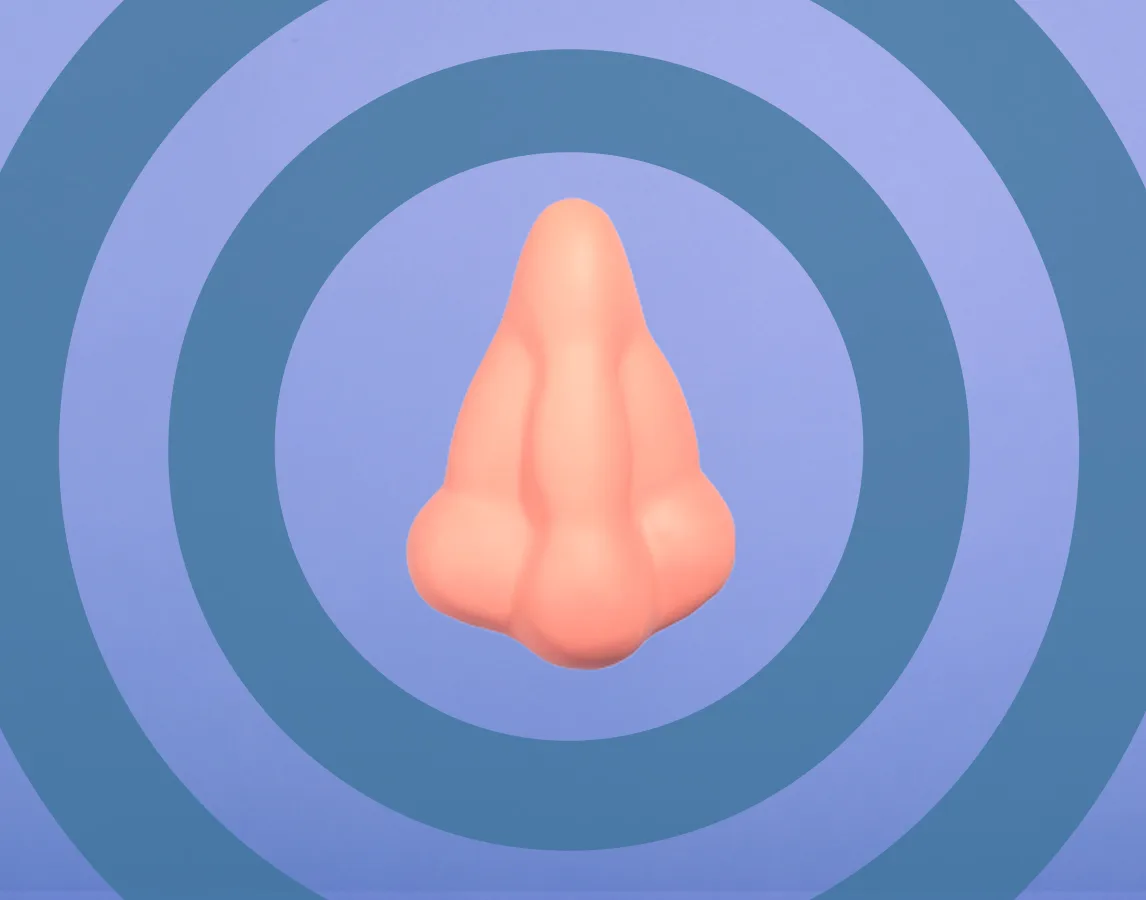Why smells are like time machines
Think back to the first grade, whatever little you may remember. It might be tough to recall the shape of your desk or the cabinet where you kept your books. Maybe a bit easier to conjure the sound of your teacher’s voice or the feel of stiff construction paper bending in your hands. But, inevitably, the things you remember most vividly are likely to be the smells—black licorice markers, waxy red crayons, and tangy Elmer’s glue.
The peculiar thing about smell is the way it fades into the background. You didn’t think about the scent of Elmer’s glue at the time, but now, years later, a whiff of the sticky paste will transport you back to grade school more readily than an old photo. Neurologists say the reason smell is so powerfully, inextricably tied to memory is simple anatomy. Molecules of Elmer’s glue bind with microscopic receptors in your nose. These receptors send a signal to your olfactory bulb, the part of your brain that processes smell. The olfactory bulb connects directly to parts of the brain associated with emotion and memories of specific events—say, gluing together a Valentine’s Day card. Signals from your eyes, ears, and other nerve endings take a more circuitous route to reach these areas.
A 2004 study investigated this phenomenon by asking five women to identify a perfume associated with a positive memory. Scientists showed the participants a picture of their selected perfume (“White Musk” in one case, “Royal Secret” in another) and a second picture of a generic perfume. Scientists then exposed them to a whiff of each bottle. Naturally, this all took place in an fMRI machine. Scans found areas linked to memory and emotion lit up most brightly when the participants sniffed their perfume of choice. As for why smells can arouse long-forgotten memories, it may be because of how those memories are stored. Often, when we recall an event, what we recall is actually the story we have told ourselves about that event. And that story can be hazy and devoid of feeling. Smells can arouse deeply buried memories rich in emotional color. Odors may summon older memories associated with more intense feelings than either sights or sounds. Smells are so powerful that scientists have suggested they could be used to treat dementia and memory loss associated with old age.
None of this, of course, answers why our brains are built this way. But there are clues in how we deploy our sense of smell. We use our noses to determine if milk is fresh or spoiled, or if water is clean or contaminated. We also use our noses to tell people apart. A newborn baby can scarcely see—for her, the world is a blurry black and white—but she has a powerful sense of smell. She will be able to recognize the fragrance of her mother’s breast milk. From early on, the scent of her kin will strike her as more pleasing than other odors. As she grows, she will catalog the smell of her mother, father, friends and lovers, aromas linked to feelings of warmth and safety. One study even found that women who could recognize the scent of their roommate scored higher on measures of emotional sensitivity. We use our noses to sniff out our loved ones. That’s why a familiar smell can unlock a vault of memories and emotions. So, perhaps, rather than collecting our experiences in photo albums and videos, we should gather our memories in fragrances—a pine tree branch to spark memories of holidays with your grandparents, a vial of cologne to summon the sound of your father’s voice or a bottle of Elmer’s glue to recall that chilly day in February when you gave a crude, but lovingly fashioned Valentine’s Day card to your very first crush.



Be kind to your mind
- Access the full library of 500+ meditations on everything from stress, to resilience, to compassion
- Put your mind to bed with sleep sounds, music, and wind-down exercises
- Make mindfulness a part of your daily routine with tension-releasing workouts, relaxing yoga, Focus music playlists, and more
Meditation and mindfulness for any mind, any mood, any goal

Stay in the loop
Be the first to get updates on our latest content, special offers, and new features.
By signing up, you’re agreeing to receive marketing emails from Headspace. You can unsubscribe at any time. For more details, check out our Privacy Policy.
- © 2024 Headspace Inc.
- Terms & conditions
- Privacy policy
- Consumer Health Data
- Your privacy choices
- CA Privacy Notice
